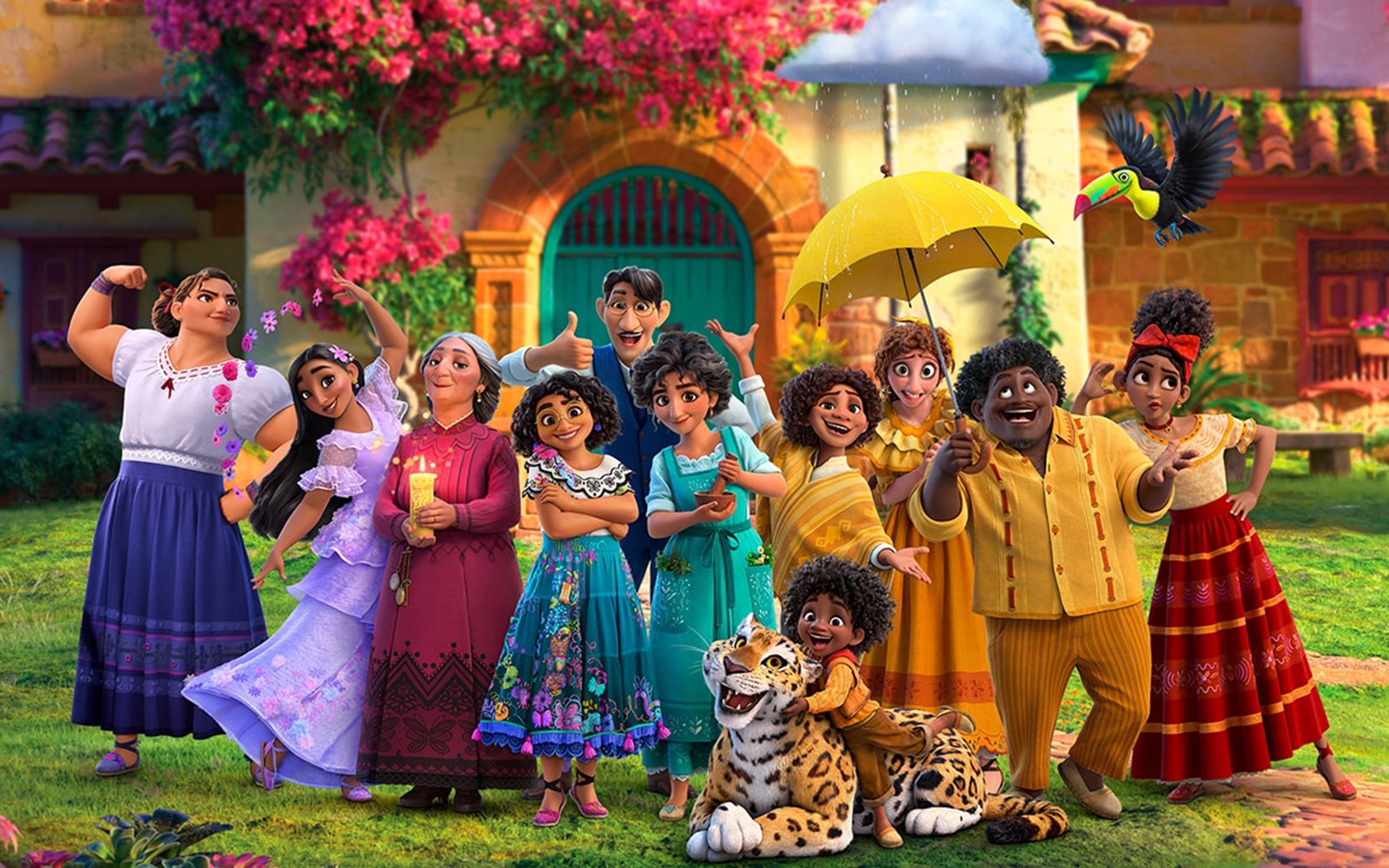
Disney's Encanto is one of four films nominated for Best Animated Feature at the Oscar this weekend, and all of them include some type of family conflict. (Disney)
Four of the Oscar nominees for Best Animated Feature — "Encanto," "Luca," "Raya and the Last Dragon," and "The Mitchells and the Machines" — focus on families that are fractured or in danger of fracturing. These films also involve the heroic efforts of one or more members to hold the family together and bring about reconciliation.
Karl Pillemer, Hazel E. Reed Professor in the Department of Psychology, recommends families use these films as a springboard for discussions about their own family histories and conflicts. Pillemer’s latest book, "Fault Lines: Fractured Families and How to Mend Them," explores family estrangement and reconciliation. His research suggests that family estrangement is more common than previously thought.
“My research shows that more than one-quarter of Americans report an active estrangement," says Pillemer.
In "Encanto," the song about the estranged family member, Mirabel's uncle Bruno, resonated with so many people that it reached the top of the Billboard Hot 100.
"My guess is that almost all these families identified with the hit 'Encanto' song ‘We Don’t Talk About Bruno,’" Pillemer says. "In real-life families, a build-up of tensions sometimes is resolved by the stinging words: ‘I never want to speak to you or hear from you again.’ Estrangement solves the problem of difficult daily interactions with a family member, but leaves a hole in the family that is impossible to overlook."
“Children are deeply affected by their parents’ estrangements (just as Mirabel is in 'Encanto'). Considering the impact a long-term estrangement may have on others in the family can be one pathway to reconciliation."
Reasons for estrangement vary, but common causes are harsh parenting, favoritism, divorce, tensions with in-laws, value differences and unrealistic expectations. Family estrangement may be growing even more common, due to increasing political polarization in the United States and differences of opinion related to the pandemic measures like mask and vaccine mandates. For his book, Pillemer conducted a national survey with over 1,300 people, and shared insights from in-depth interviews with people who had experienced estrangement and some who had achieved reconciliation. He drew upon the latter group to provide insights and tips for potentially mending family rifts.
“Children are deeply affected by their parents’ estrangements (just as Mirabel is in 'Encanto'). Considering the impact a long-term estrangement may have on others in the family can be one pathway to reconciliation. Open discussion of an ongoing family rift – or at least explaining to children how and why it occurred – can be very valuable.”
Unrealistic Expectations
A powerful theme in all four films is the power of expectations and the damage that is caused when family members appear to fall short.
Encanto illustrates the danger of expectations and how they can pigeon-hole family members and create chronic stress. For instance, the family’s beloved house begins to crack under the pressure of expectations. In 'Raya and the Dragon,' Raya is expected to save the entire world, including her father, who has been turned to stone. In Luca, the titular character (who is a sea monster) defies his parent's expectations by choosing to live above the surface of the ocean as a human.
Many family members can relate, and the films can be a good way to spark a conversation, either directly or indirectly,
“Families might bring some of their expectations out in the open in response to the prompting of these films,” Pillemer suggests.
Longing for Independence
In the "Mitchells and the Machines," the parents are baffled by their children's dependence – bordering on obsession – with technology. 'Luca' focuses on the drive for independence and the attraction of a different world, which parents struggle to understand as they try to keep their children safe. All the films endorse what research shows is a fundamental feature of parent-child relationships: ambivalence between dependence on the family and the drive for autonomy felt powerfully by emerging adults. '
"Families can take a look at how generational differences affect their own lives – and how powerful similarities can help bridge any generational rifts,” Pillemer says. “Back in the late 1960s, society became obsessed with what was called ‘the generation gap.’ Parents and children were thought to have become irreconcilably different. Although this theme no longer dominates, the films show how parents and children see the world differently, and what can be done about it."